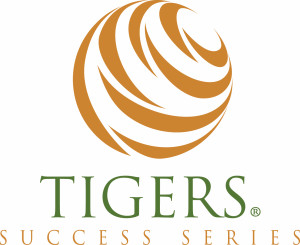 What happens when business leaders “do well and do good” regardless of the economy? A rhetorical question? No. Absolutely not.
What happens when business leaders “do well and do good” regardless of the economy? A rhetorical question? No. Absolutely not.
In the wake of years of under-employment and wage stagnation cased by one of the longest recessions in U.S. history, a new report from The Hitachi Foundation identifies the policies and practices that are empowering businesses to boost competitiveness, while also improving wages, service, employee loyalty, and profits. Doing Well and Doing Good challenges assumptions that tough times inherently require cutting jobs and wages as a means to stay afloat.
“The future of the American economy will be shaped by business innovations that challenge conventional wisdom”
The healthcare and manufacturing companies profiled in Doing Well and Doing Good help workers gain skills, retain their jobs, advance, and generate greater value. Those improvements resulted in higher profits, increased productivity, greater opportunities for workers, and (in the case of healthcare) better patient outcomes. Manufacturing firms grew in revenues and total employment.
Three innovation areas were critical to these improvements: human capital, products or services, and production or service delivery methods. The 14 profiled companies (selected from a diverse mix of 90 firms with similar approaches) achieved the largest gains for themselves, their workers, and shareholders by innovating in all three categories. Profiled companies with highly effective “doing well/good” policies include:
- NatureBake (Oregon) increased sales 1000% over seven years.
- GR Spring & Stamping (Michigan), despite automotive sector crises, increased sales 300% over the past decade with 29% annual growth since 2009. Employee turnover is 40% below industry average.
- Good Samaritan Hospital’s (New York) training/advancement programs generated wage gains of 22-100% for new nurses trained from among existing lower-level staff. Their nurse vacancies were slashed in half with $3 million annually in associated savings.
- NewAge Industries (Pennsylvania), despite sharp downturns in the industrial tubing market, has an 8 year string of record breaking revenues and maintained profits. While competitor stock prices dropped sharply, NewAge employee stock ownership shares soared by 200%. Most workers, including those in frontline production, earn over $40,000.
“The future of the American economy will be shaped by business innovations that challenge conventional wisdom,” says Barbara Dyer, the Foundation’s President and CEO. “These industry leaders do just that by investing in their workers because doing so generates major financial and strategic returns for the long-term.”
According to Ray Leathers, President of Roll Forming Corporation, a company highlighted in the report, “Incentives for our employees like pay-for-skills, gain sharing, and bonuses for continuous-improvement were integral to our expansion and profitability. Our workers now take ownership in the production process, which has allowed us to penetrate new markets.”
The Hitachi Foundation is an independent, philanthropic organization that seeks to discover and expand business practices that create tangible, enduring economic benefits for low-wealth Americans and enhance long-term business value.
Copyright TIGERS Success Series by Dianne Crampton
 About TIGERS Success Series
About TIGERS Success Series
TIGERS Success Series is a team development consulting company that helps leaders build high levels of employee engagement and commitment buy developing group norms and processes that support trust, interdependence, genuineness, empathy, risk and success. TIGERS offers team building certification to HR professionals in the use of work culture and team diagnostics and tools that build and track high performance teams.
Your point of view caught my eye and was very interesting. Thanks. I have a question for you.